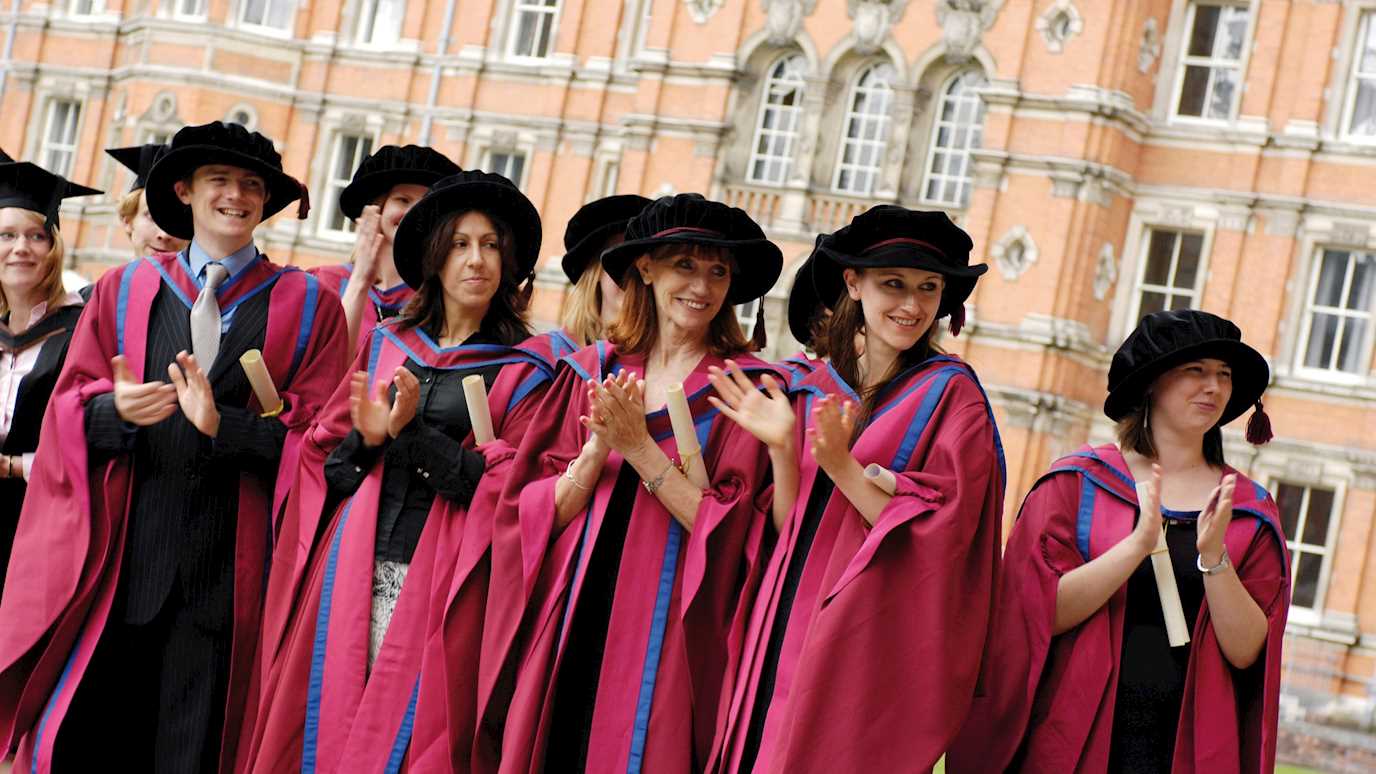Key information
Duration: 4 years full time
Institution code: R72
Campus: Egham
UK fees*: £4,786
International/EU fees**: £19,700
About us
The Department of Economics at Royal Holloway is one of the top economics departments in the country with a wide range of expertise, including labour economics, development economics, microeconomic theory, and experimental economics. In the latest Research Excellence Framework (REF2014), we were ranked 9th in the UK in terms of world-leading and internationally excellent research.
The Department is home to about 30 research active staff and 30 PhD students from over 20 countries. We offer a stimulating research environment and a vibrant PhD programme with advanced economics training in the first year and a great placement record.
The PhD student community is relatively small, thereby ensuring a consistently high level of interaction between the students and academics. Our students benefit from advanced economics training in their first year and have an opportunity to present their ongoing research and receive feedback in our PhD seminar series.
From time to time, we make changes to our courses to improve the student and learning experience. If we make a significant change to your chosen course, we’ll let you know as soon as possible.
Research facilities and environment
Our activities are organised around the department’s research centres which cover the main research areas in economics and multidisciplinary research that is conducted together with the departments of Computer Science and Psychology.
We organise weekly seminars with external speakers and advanced PhD students are encouraged to meet with our visitors. During the academic year we hold a PhD seminar and every spring we organise our Annual PhD conference where PhD students from other universities are invited to present and keynotes are given by prominent academics.
Assessment
You will begin on the MPhil degree for the first two years and will need to meet certain requirements to progress – to upgrade - to PhD student status.
In your first year, you will have to take advanced economics training that provides skills and knowledge necessary to proceed to the independent research work (see PhD Training Programme for details). The PhD courses are taught by our own faculty, as well as by external experts. Additional training opportunities (such as external summer schools or workshops) can be funded by the Department according to individual students’ specific research needs. Finally, generic research skills training is provided at the College level. The remaining years of the programme are fully devoted to research.
Part of the training throughout the programme is attending internal and external seminar series. In addition, we run a PhD seminar series where students present their on-going research and receive feedback from their peers and the faculty.
The community is relatively small with about 30 students enrolled, thereby ensuring a consistently high level of interaction between the students and academics.
Entry requirements
Candidates for a place on the MPhil/PhD programme should have completed an undergraduate degree and a taught Masters in Economics, with a distinction or a high pass, in a relevant subject.
Your future career
The department actively supports the placement of PhD graduates in positions at universities, research institutes, government agencies, and private corporations. Examples of recent placements include:
- Bristol University
- London School of Economics
- University of Stirling
- Cardiff Metropolitan University
- Max Planck Institute, Germany
- European Bank for Reconstruction and Development (EBRD)
- Institute for Employment Studies.
For more information about placements see the PhD Job Market.
Fees & funding
Home (UK) students tuition fee per year*: £4,786
EU and International students tuition fee per year**: £19,700
Other essential costs***: There are no additonal costs greater than £50 per item.
…How do I pay for it? Find out more about funding options, including loans, grants, scholarships and bursaries.
* and ** These tuition fees apply to students enrolled on a full-time basis in the academic year 2024/25.
* Please note that for research courses, we adopt the minimum fee level recommended by the UK Research Councils for the Home tuition fee. Each year, the fee level is adjusted in line with inflation (currently, the measure used is the Treasury GDP deflator). Fees displayed here are therefore subject to change and are usually confirmed in the spring of the year of entry. For more information on the Research Council Indicative Fee please see the UKRI website.
** This figure is the fee for EU and international students starting a degree in the academic year 2024/25.
Royal Holloway reserves the right to increase all postgraduate tuition fees annually, based on the UK’s Retail Price Index (RPI). Please therefore be aware that tuition fees can rise during your degree (if longer than one year’s duration), and that this also means that the overall cost of studying the course part-time will be slightly higher than studying it full-time in one year. For further information, please see our terms and conditions.
*** These estimated costs relate to studying this particular degree at Royal Holloway during the 2024/25 academic year and are included as a guide. Costs, such as accommodation, food, books and other learning materials and printing, have not been included.






















